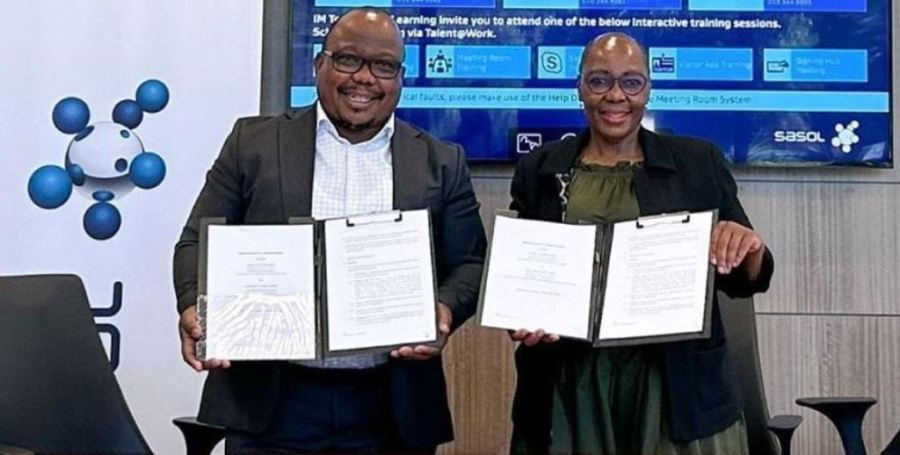The Council for Geoscience (CGS) and Sasol have signed a Memorandum of Understanding (MoU) to collaborate, explore and develop carbon capture and utilization and storage (CCUS) potential in South Africa. This collaboration marks another step in accelerating the trajectory towards achieving a low-carbon economy through strategic and cooperative initiatives.
This agreement will leverage on the expertise and experience of both the public and private sectors and deploy CCUS research and innovation towards commercial viability and scalability in South African conditions. The CCUS project is one of the climate change mitigation programs co-funded by the South African government and World Bank in South Africa.
The MoU further provides a framework for developing a deeper understanding of the geological potential for CO2 sequestration, both onshore and offshore as pointed out by the Atlas on the geological storage of carbon dioxide in South Africa and cost requirements for CO2 sequestration.
CCUS can capture more than 85% of carbon dioxide emissions from power plants and industrial facilities such as the Sasol coal-to-liquids plant in Secunda.
The CGS CEO, Mr. Mosa Mabuza, said “The government of South Africa has a long-shared history on matters of CCUS with Sasol and the timing for this collaboration is impeccable given the energy crisis confronting the country”. The CCUS intervention is poised to play a quintessential role on fossil fuel as one of energy sources in South Africa for the foreseeable future, he added.
“We are pleased to partner with CGS in exploring this nascent area that holds significant potential in enabling Sasol’s decarbonization objectives. It marks another step in our journey towards our 2050 net zero ambitions, where we believe CCUS will have a role to play,” added Dr Thembakazi Mali, Senior Vice President for Research and Technology at Sasol Energy.
The CCUS program is one of the suites of technologies implemented in line with South Africa’s climate change commitments to reduce its carbon dioxide emissions by 50% in 10 years’ time, aligned to the Paris Agreement.

